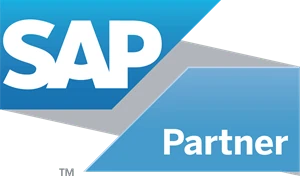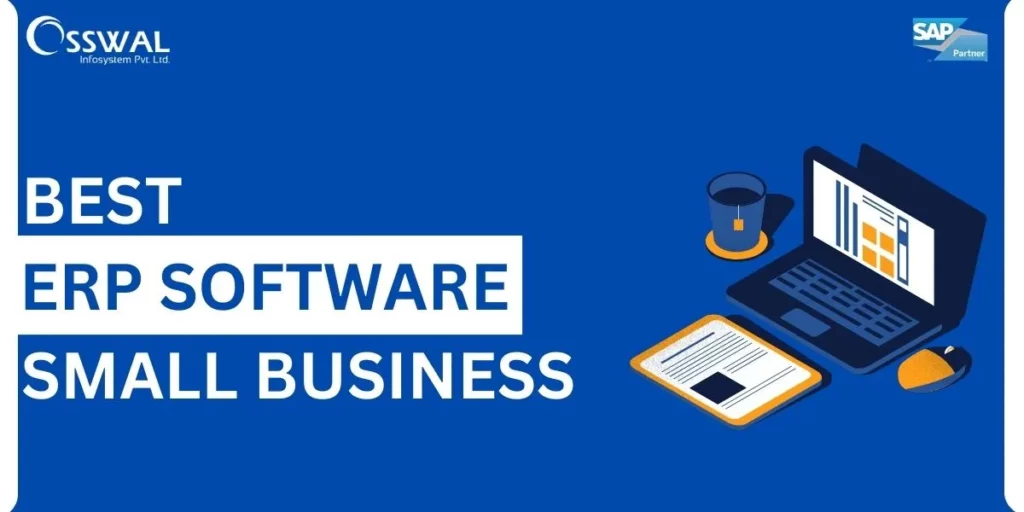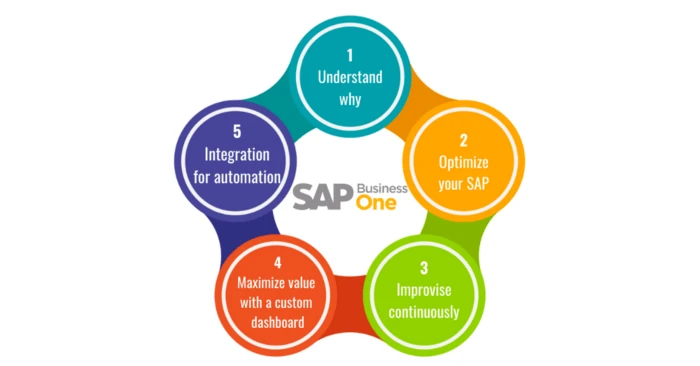Enterprise Resource Planning (ERP) systems have long been associated with large enterprises managing complex operations. However, in today’s fast-evolving business landscape, small businesses are also recognizing the immense value that ERP solutions can offer. Contrary to the misconception that ERP is exclusively for larger organizations, ERP for small businesses is gaining traction as a means to streamline operations, enhance efficiency, and gain a competitive edge. In this blog post, we’ll explore how ERP systems can be tailored to meet the unique needs of small businesses.
Understanding Small Business Needs
Small businesses have distinct operational characteristics and challenges that set them apart from larger enterprises. Recognizing these unique needs is crucial when implementing an ERP system tailored for small businesses.
1. Scalability and Growth Potential
Small businesses often start with limited resources and staff. An effective ERP solution for small businesses should be scalable, allowing them to expand operations without significant disruptions. It should accommodate the growing demands and changing requirements as the business matures.
2. Budget Constraints
Cost-consciousness is a common trait among small businesses. Investing in an ERP system must provide a clear return on investment. Therefore, ERP Software for small businesses should be budget-friendly without compromising on essential features.
3. Ease of Use
Small businesses typically have limited IT resources and personnel. The ERP system should be user-friendly, with a minimal learning curve. This allows small businesses to quickly on-board employees and start benefiting from the system.
4. Flexibility and Customization
Every small business has unique processes and workflows. An adaptable ERP system should offer flexibility and customization options to align with these specific needs. Whether it’s managing inventory, handling orders, or tracking finances, the ERP system should be able to accommodate these distinct requirements.
Benefits of ERP for Small Businesses
Now, let’s explore how an ERP system tailored for small businesses can provide substantial benefits:
1. Streamlined Operations
ERP systems consolidate various business processes into a unified platform. This streamlining eliminates redundant tasks and automates routine activities, enhancing overall operational efficiency.
2. Data Accuracy and Decision-Making
Small businesses often rely on accurate data to make informed decisions. An ERP Software ensures data accuracy, reducing errors and providing real-time insights into business operations.
3. Improved Customer Relations
A well-implemented ERP Software allows small businesses to offer better customer service. It enables timely responses to customer inquiries, efficient order processing, and enhanced communication.
4. Cost Savings
Small businesses can realize cost savings by automating processes, optimizing inventory management, and reducing manual data entry. Additionally, streamlined operations can lead to cost efficiencies.
5. Scalability
As small businesses grow, their ERP system can scale with them. This adaptability ensures that the system remains a valuable asset as the business expands.
6. Competitive Edge
An ERP system empowers small businesses to compete effectively with larger counterparts. It enhances their ability to respond to market changes, customer demands, and industry trends.
Choosing the Right ERP Solution
Selecting the right ERP solution for a small business involves careful consideration. Here are some steps to help make an informed choice:
1. Assess Business Needs: Begin by identifying the specific needs and goals of your small business. What processes do you want to streamline, and what outcomes are you aiming for?
2. Budget Planning: Determine a realistic budget for your ERP implementation. Look for solutions that offer a good balance between features and cost-effectiveness.
3. Scalability: Ensure that the ERP system can accommodate your growth plans without requiring a complete overhaul.
4. Customization: Look for an ERP system that allows customization to tailor it to your unique business processes.
5. User-Friendliness: Consider the ease of use and accessibility of the ERP system. It should be intuitive and require minimal training.
6. Vendor Support: Choose a reputable ERP vendor with a track record of serving small businesses and providing responsive support.
In conclusion, ERP for small businesses is not only feasible but highly beneficial. Small businesses can leverage tailored ERP solutions to optimize operations, enhance efficiency, and gain a competitive edge. By recognizing their unique needs, selecting the right ERP solution, and planning for growth, small businesses can embark on a transformative journey that propels them toward sustainable success in the modern business landscape.




